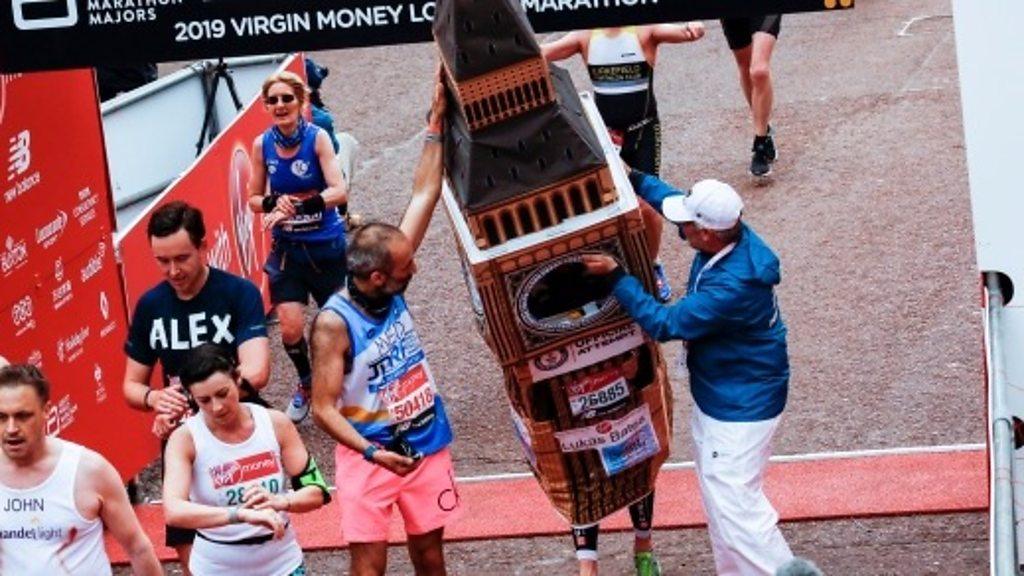London Marathon changes after runners called fat and slow
- Published
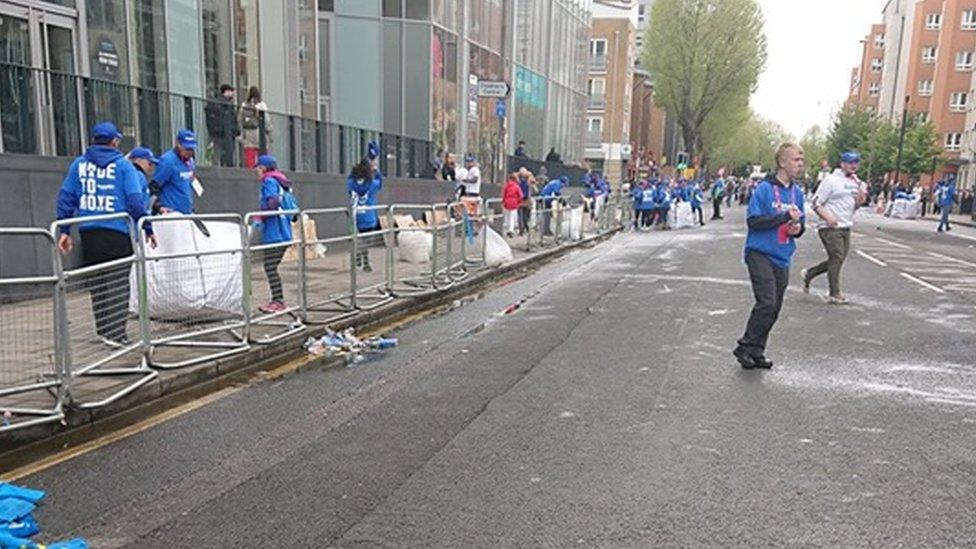
Runners said water stations along the course had been packed away by the time they reached them
Hundreds of runners who were shouted at for being too slow during this year's London Marathon have been given free entry to next year's event.
Some runners said they were also called "fat" by contractors who had started to clear up while they were still running.
Others said the course was being dismantled while they were running meaning they could not see where to go.
London Marathon has apologised and said it would make changes to ensure this would not happen again.
The affected runners were those running at a pace of 7.5 hours.
Liz Ayres, who was asked to run the course in that time to aid participants, has previously said that despite running at the requested speed, the clean-up operation had begun around her and other runners and they had been "told to hurry up".
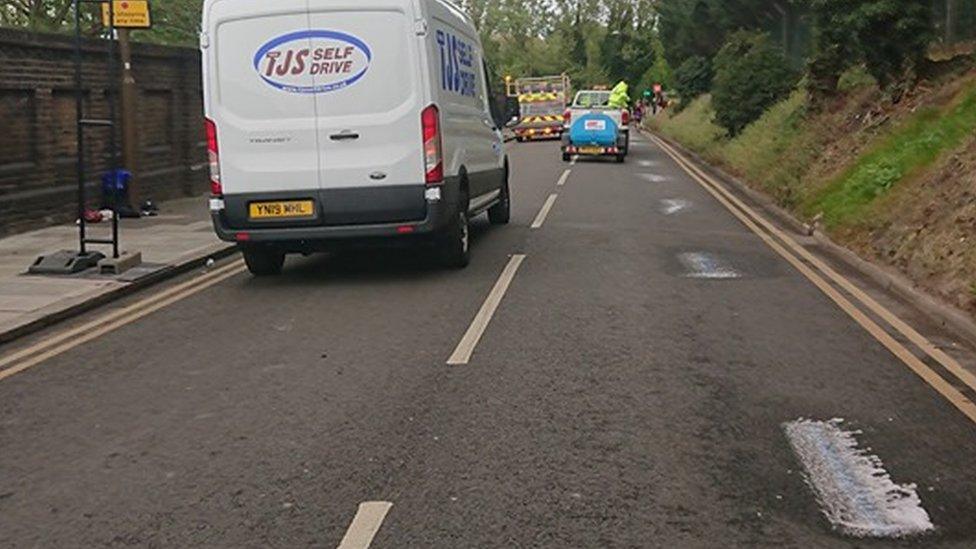
Ms Ayres said the clean-up operation had begun before all runners had passed
She said abuse had also been directed towards them by official marathon representatives, such as cleaning contractors and marshals.
This included comments such as "if you weren't so fat, you could run," and "this is a race, not a walk".
'Have another go'
Kerrie Aldridge, from Cardiff, who finished last in this year's marathon, has been offered a place for next year.
She took nine hours and 11 minutes to complete the route and said she was "sniggered" at by stewards.
She said: "When I finished I was thinking 'I'm never going to do it again' but now I would love to have another go.
"I'm partly waiting for the backlash from people saying I don't deserve it.
"But I'll be there on the start line. I will train as hard as I can to prove I do deserve a place."
'Made mistakes'
Following an investigation, London Marathon has said it will
Start the clean-up operation later to ensure it will not affect those running at that pace
Look at the timings of when water was handed out
Have one of its most senior staff at the back of the race to monitor the event
Tell contractors of the procedures in place for those running at the slower pace
Sarah Pringle, who had cleaning fluid sprayed on her foot, said she thought the changes London Marathon was implementing were "amazing".
"I think they've done everything they could possibly do. All we wanted to do was make them realise that they'd made mistakes and that they don't make them again."
This year's marathon was completed by a record 42,549 runners.
- Published2 May 2019
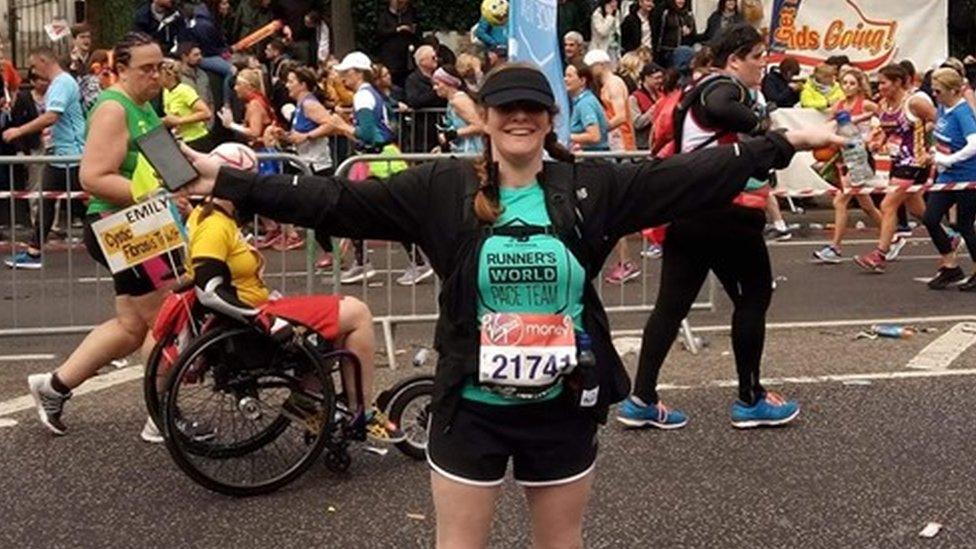
- Published29 April 2019
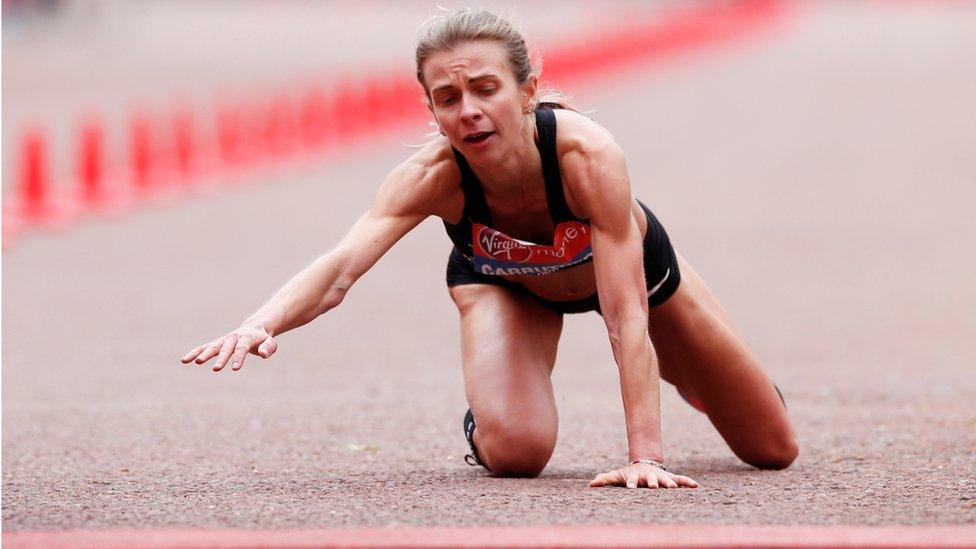
- Published29 April 2019
